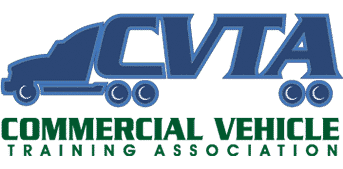Are you looking for a great job that pays well, offers stability, and lets you stay close to home? Construction vehicle CDL (commercial driver’s license) jobs might be what you’re looking for. In this blog post, we’ll explore the world of construction driving, give examples of jobs that require a CDL, and explain the benefits of working in this field.
Construction Jobs That Benefit From A CDL
Construction driving means operating big vehicles like dump trucks, cement mixers, and cranes. These vehicles are essential for construction projects, such as building roads and bridges or assembling tall buildings.
You’ll need a CDL to drive many certain types of construction vehicles, which you can get by completing special training and receiving a license. In other cases, a CDL isn’t directly required, but can still be beneficial to show potential employers that you have experience driving large vehicles.
Four construction jobs that may require a CDL include:
1. Dump Truck Driver
As a dump truck driver, you’ll transport and unload materials like gravel, sand, and debris from construction sites. This job keeps construction sites running smoothly.
2. Concrete Mixer Driver
Being a concrete mixer driver could be a good fit if you excel at tasks that require precision. You’ll deliver freshly mixed concrete to construction sites and ensure it’s poured correctly and quickly.
3. Crane Operator
Operating a crane takes skill and carefulness. As a crane operator, you’ll lift heavy objects and equipment, which is an essential job in construction.
4. Heavy Equipment Hauler
Construction sites often need large, heavy machines like excavators and bulldozers. As a heavy equipment hauler, you’ll ensure these machines are transported safely to and from construction sites.
Benefits of Construction Vehicle CDL Jobs
Construction vehicle CDL jobs are a great choice if you want a stable career that pays well and lets you stay close to home. With job security, skill development, and opportunities for advancement, a CDL career in construction can lead to a rewarding future.
Five of the benefits of working in a construction job that requires a CDL are:
1. Good Pay
Construction vehicle CDL jobs often pay well. There’s high demand for skilled drivers, so employers offer good wages to attract and keep talented workers.
2. Job Security
The construction industry is necessary for the economy, and there’s always a need for skilled workers. If you choose a CDL career in construction, you can enjoy job security and a stable future.
3. Local Job Opportunities
If you want to work close to home, construction vehicle CDL jobs are a great choice. Construction projects happen in various places, allowing you to find work near your community.
4. Learn New Skills
Operating construction vehicles needs special training and knowledge. By working in a CDL career in construction, you’ll keep learning and developing your skills, which makes you valuable in the industry.
5. Room to Grow
With experience and more certifications, you can move up in the construction industry. You could become a supervisor, a trainer, or even start a construction trucking company of your own. There are lots of opportunities to move ahead in your career.
Drive Your Future Forward At Phoenix Truck Driving Institute
If you’re ready to start an exciting career, consider attending a high-quality truck driving school to earn your CDL. Phoenix Truck Driving Institute is a leading truck driving school that offers comprehensive training programs designed to give you the skills necessary to excel, however you choose to use your CDL. With experienced instructors, top-notch facilities, and flexible training options, our program prepares you for success on the road.

















